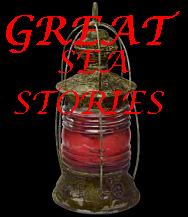Russian Frogman Claims He Killed Real Life British 'James Bond' Placing Mine On Khruschev's Ship in UK Waters
A former Russian frogman has told a Russian documentary team that he cut the throat of a British Naval hero thought to have inspired Ian Fleming's fictional superspy James Bond. Retired sailor Eduard Koltsov said he caught Commander Lionel "Buster" Crabb placing a mine on the hull of a Russian ship docked off Portsmouth in 1956 during the visit of Soviet leaders Nikita Khruschev and Marshal Nikolai Bulganin. Commander Crabb went missing during the dive. A headless body identified as his was found in Chichester the following year. Koltsov told the team he needed to tell the truth about the Cold War mystery before he died, according to the BBC. The Russian, who was 23 at the time, said he was ordered to investigate suspicious activity around the ship when he spotted Commander Crabb fixing a mine to the hull. He then showed the documentary team the dagger he claims he used to kill the Englishman and the Red Star medal he was later awarded secretly for his bravery. "I saw a silhouette of a diver in a light frogman suit who was fiddling with something at the starboard, next to the ship's ammunition stores," Mr Koltsov told the film crew, according to the BBC. "I swam closer and saw that he was fixing a mine."
Cold War cover-up: Commander Lionel 'Buster' Crabb, left, pictured with Ray Hodges when the pair examined a damaged submarine in the Thames Estuary The headless body of a frogman was found in Chichester in June 1957 and a coroner later ruled that it was Crabb's body. Secret documents relating to the controversy were released to the public at the National Archives in Kew, south-west London, last year. They reveal the determination of officials to cover up what really happened, even rejecting a request for maintenance from ex-wife Margaret Crabb. Prime minister Sir Anthony Eden told the House of Commons that it would "not be in the public interest" to disclose the circumstances of his death. He added that "what was done was done without the authority or knowledge of Her Majesty's ministers". The cover-up prompted wild speculation for years, including claims that he was alive and well and living in Russia as an officer in the Red Navy, and others that he was killed by the Soviets. The secret documents released last year revealed that five months after Crabb's death, WH Lewin, head of Naval Law, wrote in a memo: "If this came out ... it would not seem to square very well with our statement that Crabb had been out of the Navy for over a year at the time of his death." The official Admiralty line following the incident on April 19 was that Crabb had been "specially employed in connection with trials of certain underwater apparatus" and was missing, presumed drowned. Lomond Handley, 61, one of Crabb's few living relatives, said: "The government told lie after lie, successive governments too, not only the Government of the day.
Mystery: 'Buster' Crabb, pictured here at the centre of a Tobermory Treasure Hunt "No government has ever come out with the truth. It just shows that governments cannot be trusted." However today she downplayed Koltsov's claims, saying: "I find it astonishing and hard to believe. For any of Her Majesty's Navy to endanger a visiting ship would have been unthinkable. "Any explosion would have embarrassed our Government and destroyed the relationship between the British and the Soviet Union which our Government was trying to build up. "It's possible that Crabb may have gone down to see whether there were mines and it would have been his duty to get rid of them." Miss Handley's mother Eileen was a distant cousin of Crabb and was brought up with him. She spent her life trying to find out what happened to Commander Crabb but "came up against brick walls", Miss Handley said. She added: "It's absolutely incredible and I find it hard to believe that any Soviet divers or sailors would have committed murder of a British sailor in our waters. "What he is admitting to, this gentleman, is committing an act of murder. "I simply don't believe it." Crabb, a Royal Navy commander like his fictional successor James Bond, was a decorated war hero. He won the George Medal for his work as a frogman specialising in removing German limpet mines from merchant ships.






















<< Home